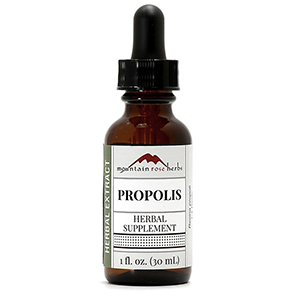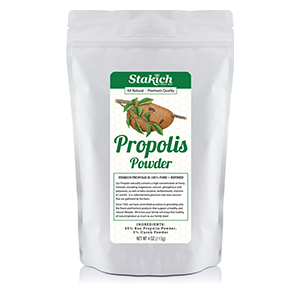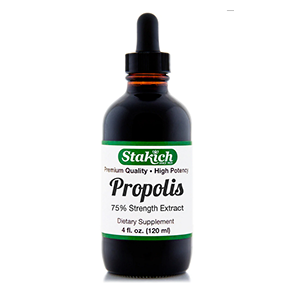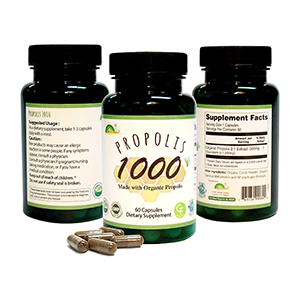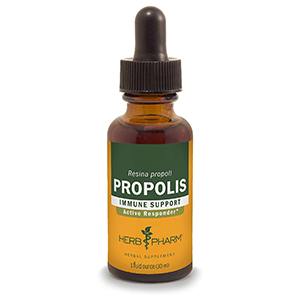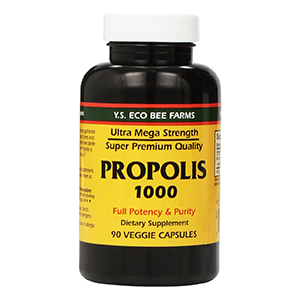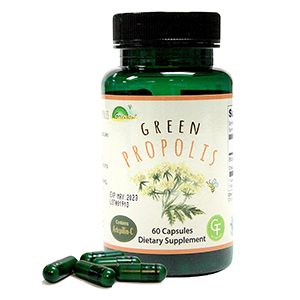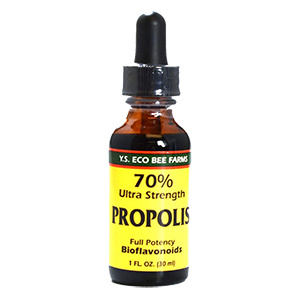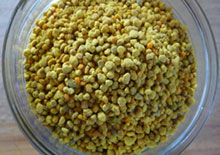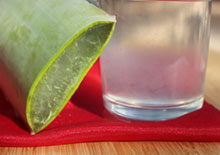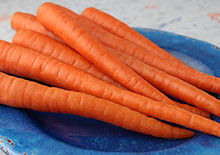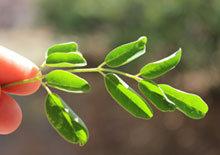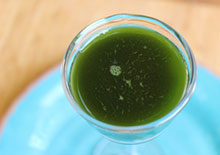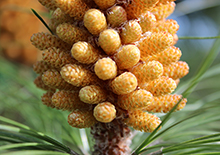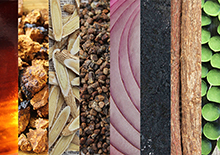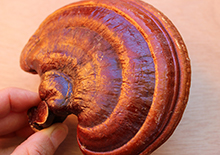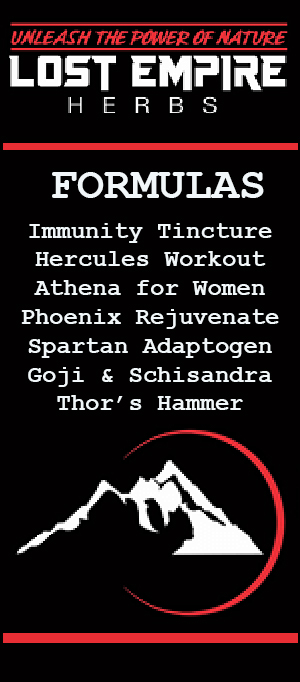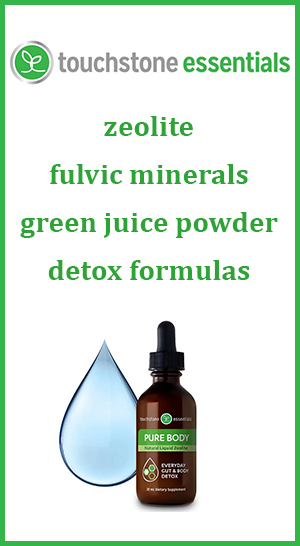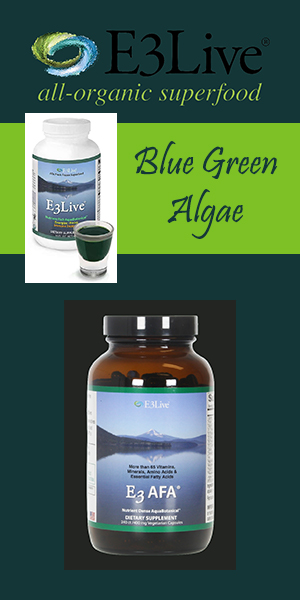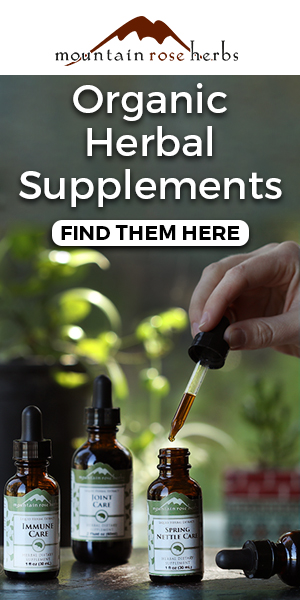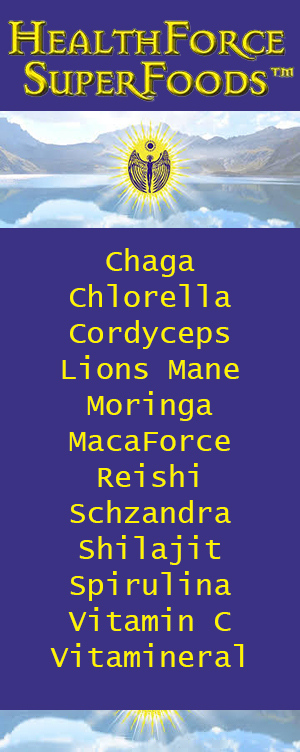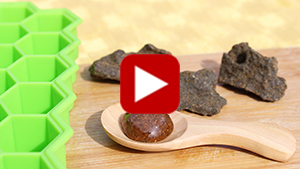- Home
- Top Superfoods
- Propolis Benefits
Propolis Benefits, What Makes It a Prized Superfood
Intro | What is Propolis? | Supplement Processing | Chemical Composition | Main Propolis Benefits | Purchasing | Precautions | Shop
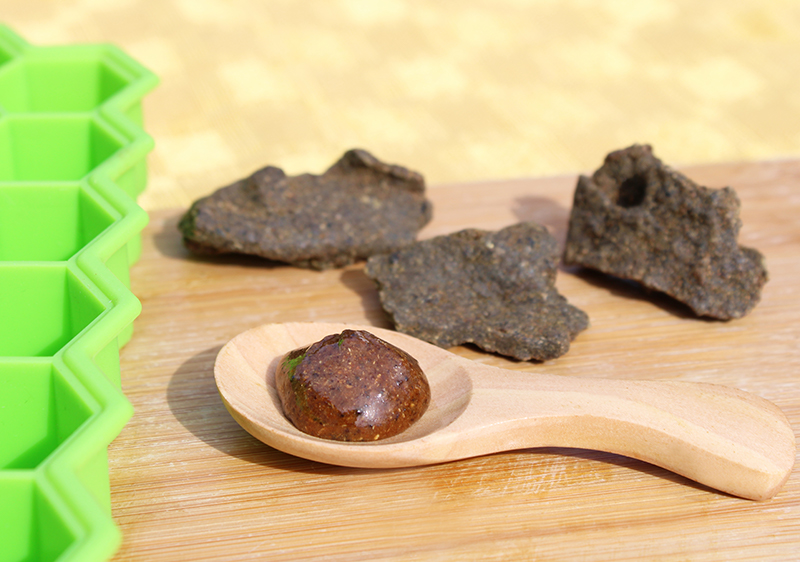
Propolis (Resina propoli) is a resinous material made by honeybees (Apis mellifera) and some stingless bees to seal and protect the beehive from the elements, pests and harmful microbes.
It has been highly valued by healers and herbalists alike for its many profound properties to humans when consumed or used topically.
On the list with other prized bee superfoods like bee pollen, royal jelly and honey, it has been utilized in the folk tradition of apitherapy for a very long time and for several main uses we will soon discuss.
What is Propolis Made From?
Table of Contents
Intro | What is Propolis? | Supplement Processing | Chemical Composition | Main Propolis Benefits | Purchasing | Precautions | Shop
Bees gather resin or sap from mostly trees but sometimes other plant sources. They create propolis by blending in some of their own salivary discharges and beeswax into this collected material. Minute amounts of bee pollen and honey may also make their way in.
Crude bee propolis as a straight substance is waxy soft, pliable and of course very sticky. It's commonly called "bee glue" because it's used as a sealant to bind the hive structure together, fill in gaps as well as insulate, but it also contains antimicrobial compounds that keeps the beehive sterile and the colony healthy.
Propolis as a result contains many healthful qualities that have been found over the ages to offer benefits as a dietary supplement to humans when ingested.
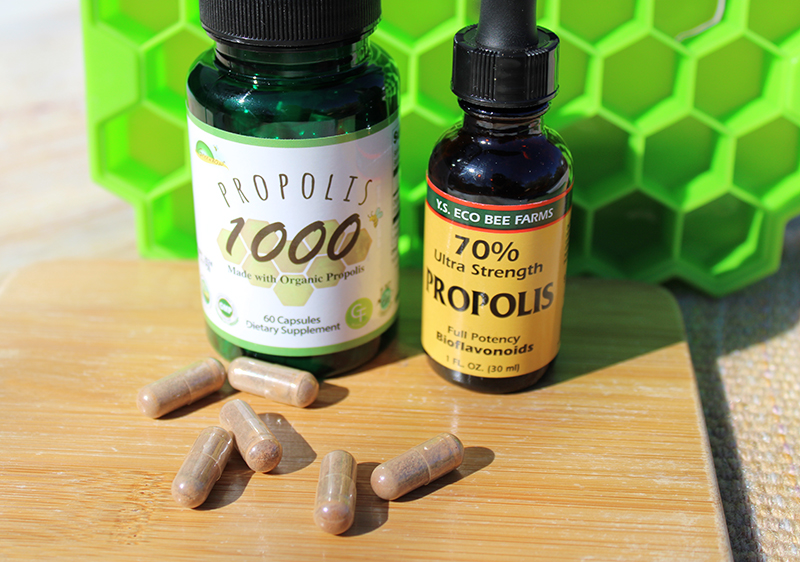
Propolis Processing for Use as a Dietary Supplement
Raw propolis must be processed before human consumption is possible.
Typically, when preparing propolis in its natural state for supplemental purposes, it must go through a process to remove the beeswax, other organic matter and essentially make it more absorbable to the human digestive tract.
However, after this refinement it is very dense and can harden like obsidian, becoming brittle at temps below 68 °F (20 °C).
Refined propolis at this stage is always solvent extracted, frequently using alcohol or propylene glycol. This could be a ratio of 1-2 parts propolis to 1-4 parts solvent.
Suppliers may advertise these ratios and include terms like "ultra strength" or "pure". This procedure reduces some of the inert compounds, thus condensing more of the desired nutritional components.
The end result is a thick concentrated tar-like material often called a "maximum potency" or "full potency" propolis. It smells a bit like honey with an earthy aroma. It is not sweet, however.
It is sold in a dark liquid form or dried with other ingredients (often carob powder) to make propolis powder or capsules. A straight powder or liquid extract cannot be consumed directly as it will stick to the teeth. It must be diluted using honey, water or another liquid.
While most propolis is usually a darker brown color, sometimes green or red varieties are available as supplements. These are derived from plant sources in Brazil as well as other parts of Latin America.
Chemical Composition of Propolis Benefits
When it comes to most bee products, like propolis, the exact chemical
composition can vary widely depending on the season, hemisphere
collected, hive location and other factors.
Bees, being opportunists, will gather from all available sources. In both large-scale and small-scale commercial production, these sources are sometimes controlled as the bees will only gather within a certain range. Often this propolis-specific region will include tree species known for exuding prolific sap production.
While it can be difficult to deduce the exact constituents coming from any one propolis source, generally, most are known to be comprised of many similar complex compounds and nutrients that account for its comparable properties and uses throughout human history.
According to some science, raw unprocessed propolis on average contains about "50% resins, 30% waxes, 10% essential oils, 5% bee pollen, and 5% of various organic compounds".
The majority of the bioactive components in propolis are in the resins in the form of POLYPHENOLS, chiefly phenolic acids and flavonoids. (*)
Two common phenolic flavonoids found in propolis in different ratios often include pinocembrin and pinobanksin, but there are many others.
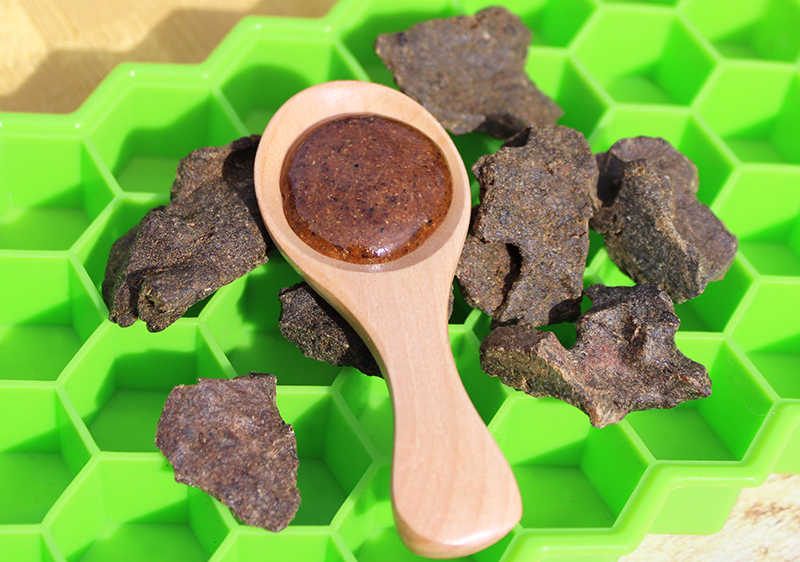
Propolis Benefits and Its Main Prized Folk Uses
Propolis benefits mostly revolve around its strong antimicrobial nature as well as its antioxidant and anti-inflammatory activities. Here are 3 ways it is traditionally utilized.
1) Immune and Respiratory Support
2) Skin Care and Wound Healing
3) Oral Health and Dental Hygiene
1) Immune and Respiratory Support
By far, the top known age-old folk use for propolis is its immune-supporting potential. (*)
It is often used as an antimicrobial with other botanicals in formulas designed to boost and protect these functions.
It's therefore a good one to have on hand in your herbal apothecary for periodic use when feeling on the verge of sickness or immunocompromised.
Much the same way propolis disinfects the beehive from unwanted pathogens, it also offers a similar benefit as a dietary supplement to fend off undesirable microbes. A propolis and honey combination has likewise been researched for its potential influence on certain health-related conditions.
You can commonly find propolis supplements in wellness sections of many health food stores here in the U.S. They are frequently used as an ingredient in honey often with bee pollen and royal jelly. But, if you're looking for highest propolis potency, we recommend getting straight propolis extract.
Propolis is an ingredient in many herbal and supplement products that also offer support to the upper respiratory tract and congestion in this region.
We add it to our own homemade herbal cough syrup recipe that also includes other "clear breathing" favorites like elecampane, ginger, marshmallow, saw palmetto, licorice root and star anise.
Propolis benefits are also a classic ingredient used by many herbalists when making DIY throat sprays, lozenges or immune support formulas. Supplement brands often utilize it with other botanicals such as goldenseal and echinacea.
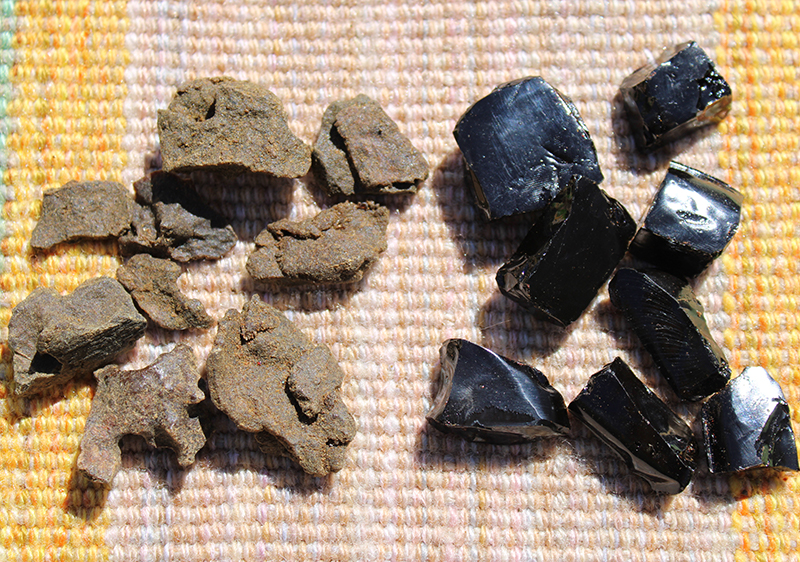
2) Skin Care and Wound Healing
Propolis has long been used topically to support wound healing and to help protect against infection. In part, this attribute has been identified to be a result of its anti-inflammatory influence.
Propolis, being antimicrobial, can help to disinfect the area as well as seal and repair the tissue. Serving as a type of band-aid, drops of propolis extract can be placed directly on minor scrapes and burns to support faster healing. It's also known to be of benefit to skin issues like wart and cold sores.
Propolis is commonly used in commercial beauty products or when making homemade face masks, lotions or salves, it can act as a natural preservative.
3) Oral Health and Dental Hygiene
Because propolis is an anti-bacterial agent, it has proven to work well for maintaining oral health and dental hygiene. (*)
It is frequently an ingredient in natural mouthwash products and toothpaste. (*)
In some research, it showed potential as an "adjuvant to periodontal treatment."
About Purchasing Propolis
While we often advocate consuming high-quality non-GMO foods, herbs and supplements, this is especially the case with bee products such as propolis.
It is best to get propolis from reputable brands that are organically certified and/or maintain hives that are in wild pristine locations away from major cities or pollutants.
In addition, we like to support small artisanal beekeepers who love their bees and adhere to humane beehive practices as opposed to commercial mass-produced products aiming for a large output.
Precautions:
Bee products should not be given to young children and may cause allergic reactions for some people. Consult a physician before taking propolis if you are pregnant, nursing, taking medications or have a medical condition.
Shop Related Products (About Affiliates & Amazon Associate Paid Links)
Affiliate Disclaimer: This section contains affiliate product links. If you make a purchase through our recommended links, we receive a small commission at no additional cost to you. Thanks for the support.
Our YouTube Video


